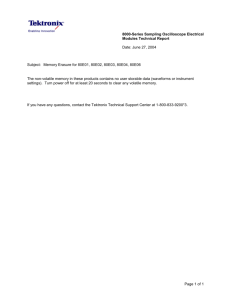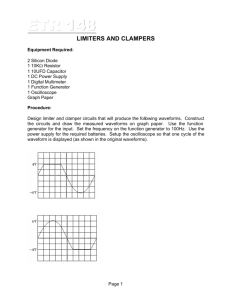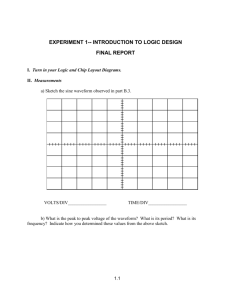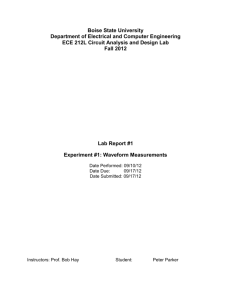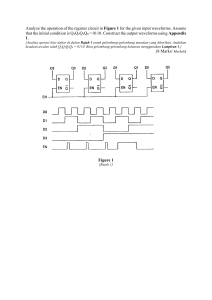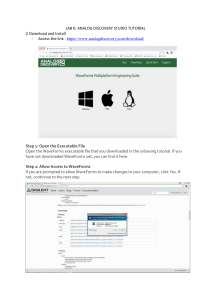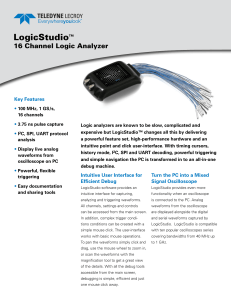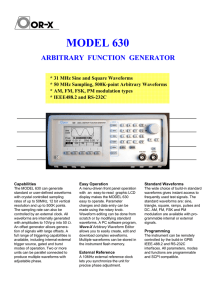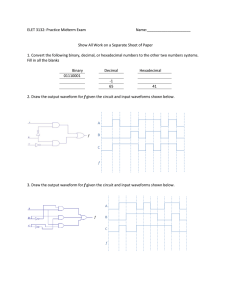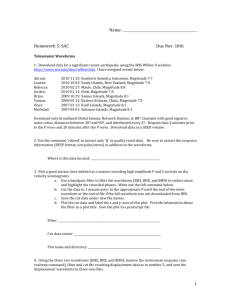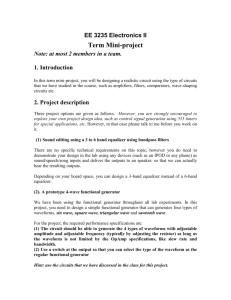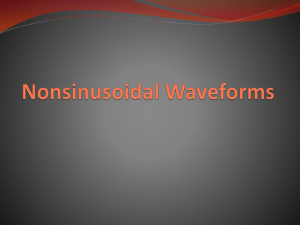hifu-16.
advertisement
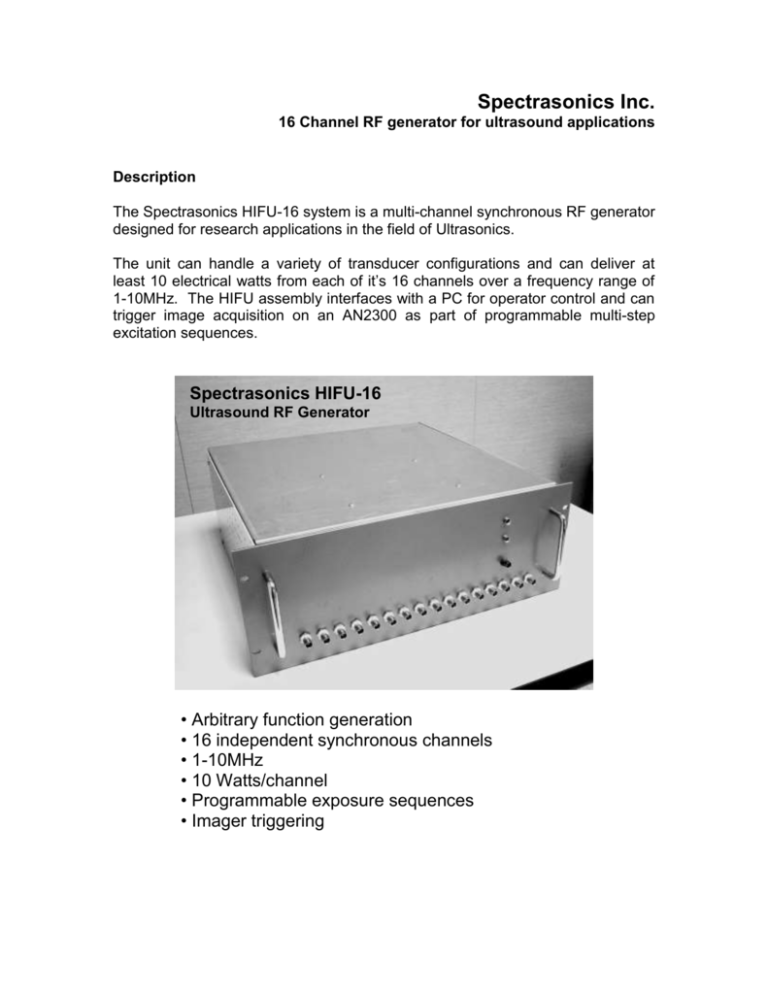
Spectrasonics Inc. 16 Channel RF generator for ultrasound applications Description The Spectrasonics HIFU-16 system is a multi-channel synchronous RF generator designed for research applications in the field of Ultrasonics. The unit can handle a variety of transducer configurations and can deliver at least 10 electrical watts from each of it’s 16 channels over a frequency range of 1-10MHz. The HIFU assembly interfaces with a PC for operator control and can trigger image acquisition on an AN2300 as part of programmable multi-step excitation sequences. Spectrasonics HIFU-16 Ultrasound RF Generator • Arbitrary function generation • 16 independent synchronous channels • 1-10MHz • 10 Watts/channel • Programmable exposure sequences • Imager triggering Software A PC based software package communicates with the HIFU unit over a standard Ethernet link. The unit can be connected directly to a PC with a crossover cable or addressed over a local area network. The software makes it easy for the user to download sine, square, or triangle waveforms into the 16 channel memories and will calculate the phase shifts required for each channel based upon a given transducer geometry. Arbitrary waveforms may also be loaded into each channel memory for custom applications. The software lets the user construct and download experimental "scripts" consisting of sequences of exposure, delay, and external triggering events. Each channel has 131 kilobytes of RAM associated with it. This memory is divided into eight 410 sec (16384 samples @ 40MHz) “partitions”. Once loaded, the scripts can switch rapidly between the waveforms stored in each partition. This architecture provides for a great deal of flexibility in the system's operation. Specifications Number of channels: 16. Provisions are incorporated in the system to synchronize additional HIFU-16 modules. Power output: The units are rated at a nominal maximum output of 10W/channel over a range of 1-10MHz into 50 Ohms. When generating sinusoidal signals, undesired harmonics are suppressed 25dB or more below the fundamental. Higher powers are available when operating at frequencies less than 10 MHz. Frequency range: 1 to 10 Mhz nominal. Waveforms are synthesized at a sample rate of 40 MHz. Waveforms: Sine, square, triangle and random. Arbitrary waveforms of up to 410 microseconds in duration can be uploaded by the user. Eight bit quantization is used for waveform synthesis and an additional 8 bits of global system gain is used to set the overall power level. Memory: Each channel has 131 kilobytes of RAM associated with it. This memory is divided into eight 410 sec (16384 samples @ 40MHz) “partitions”. Once loaded, the system can switch rapidly between the waveforms stored in each partition. Mechanical/Electrical Assembly The excitation unit is housed in a 19 inch rack mountable chassis 19”17”7”. It is powered by 3 Astron SS-25 power supplies. Front Panel indicators/connectors: ready light, over temperature light, trigger output, RF outputs 1-16 Rear Panel indicators/connectors: DB9 – serial port to AN2300 ECG input for image acquisition triggering 1/8” phone – thermocouple interlock RJ45 – Ethernet connection Power supply leads For more information please contact: Chris Vecchio, PhD Director of R&D cvecchio@spectrasonics.com Spectrasonics Imaging Suite 301 489 Devon Park Drive Wayne, PA 19087 610 964 0713 Tel 610 964 2894 Fax Richard Bernardi, PhD President rbernardi@spectrasonics.com
